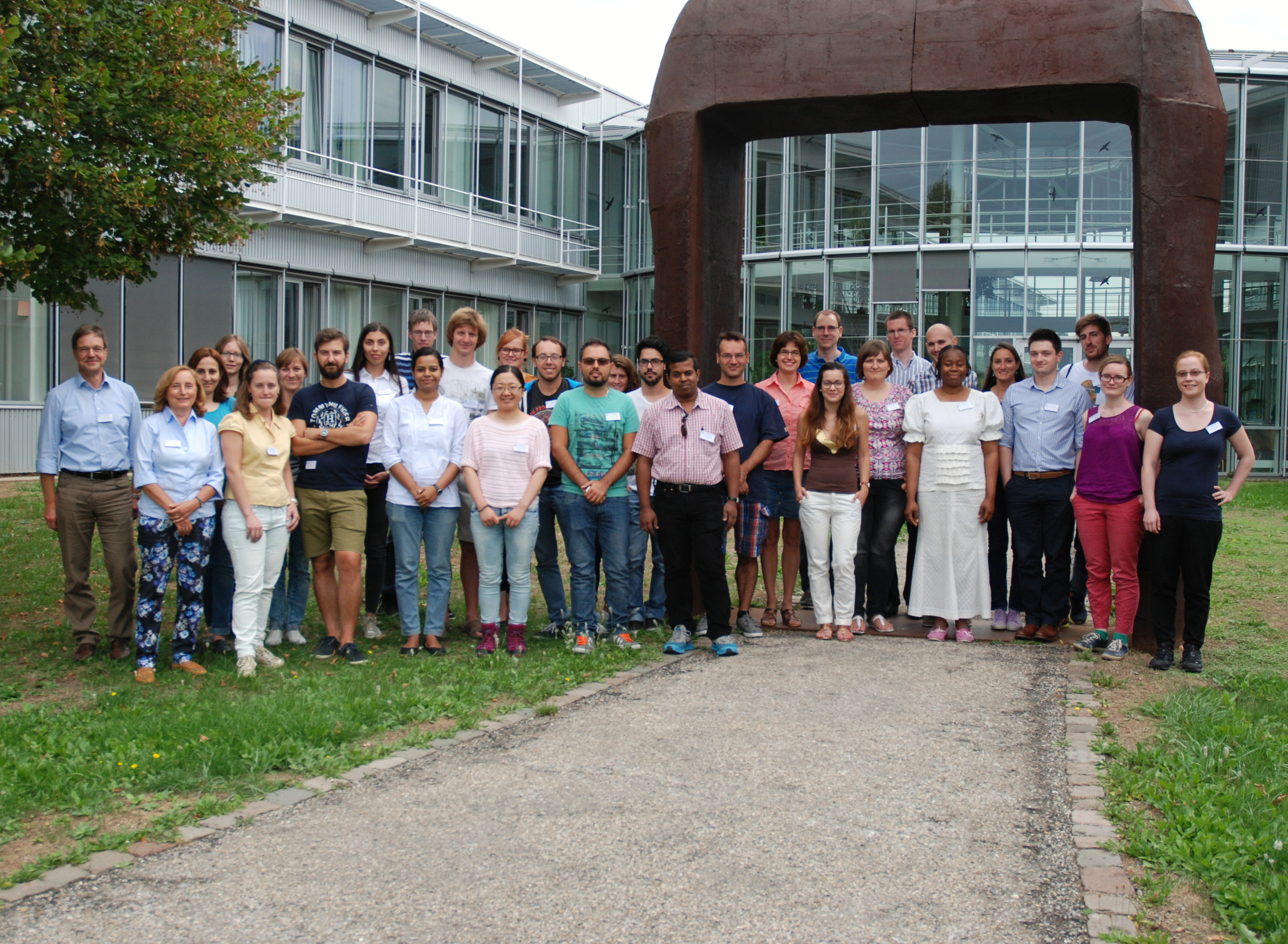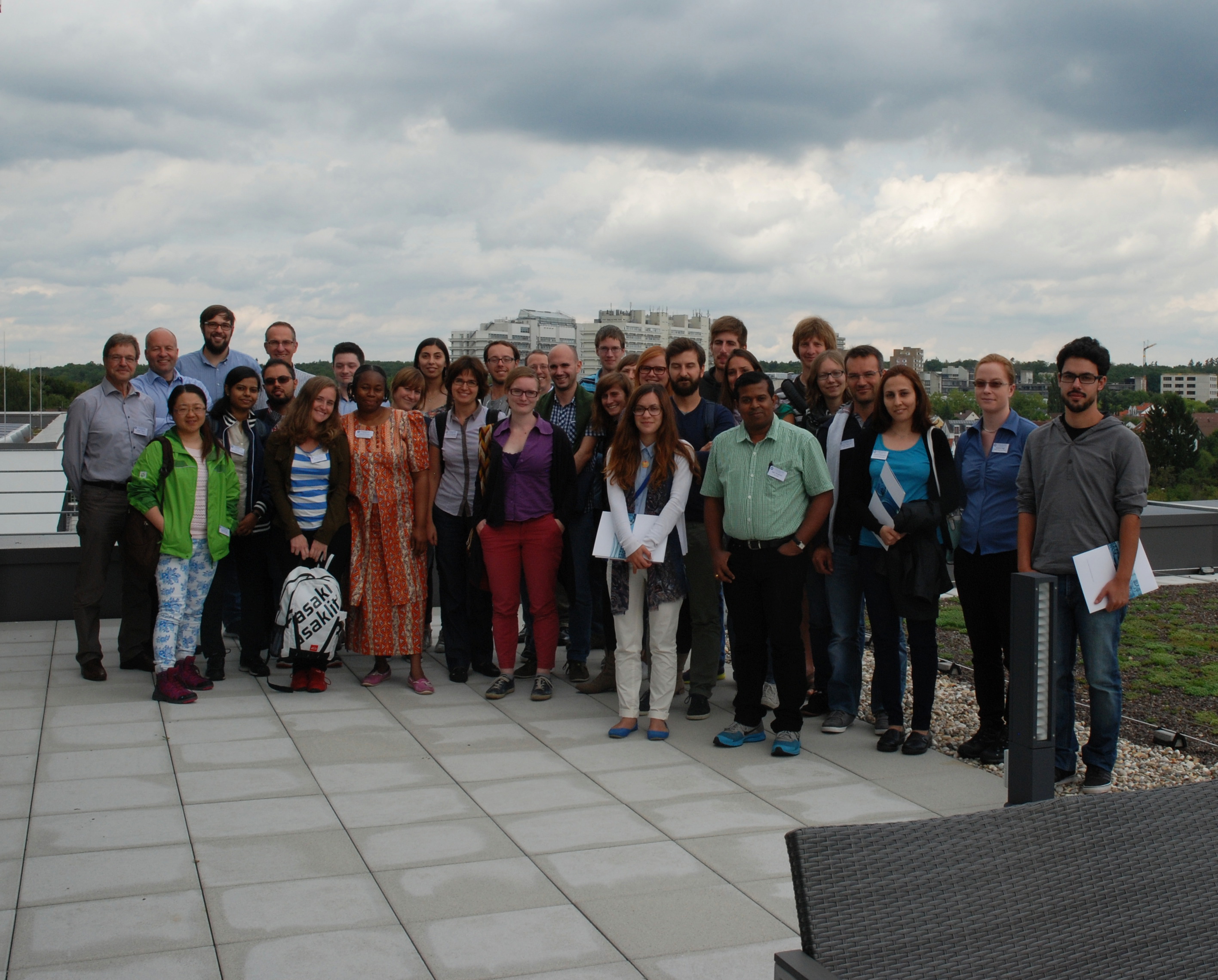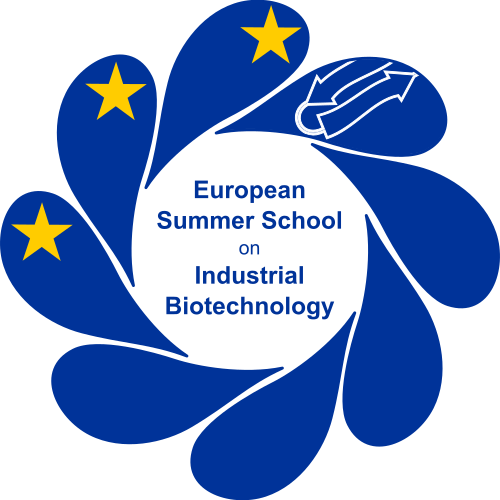2nd ESSIB, 2015 - University of Stuttgart
Design of Biocatalysts: Concepts, Methods, and Applications
31.08 - 04.09, 2015

The 2nd ESSIB took place 31. August - 4. September 2015 at the University of Stuttgart with the topic "Design of Biocatalysts: Concepts, Methods, and Applications".The summer school consisted of theory talks by 4 lecturers from Stuttgart and 3 lecturers from Israel, Switzerland and Netherlands, three practical afternoon courses offered by the local organizers, and an excursion to the company Insilico Biotechnology. 27 master students, PhD students, postdocs and researchers from 13 European countries, India and South Africa participated in the course.
Participants
- Bianca Ayres, Lund University, Sweden
- Anna Baierl, Forschungszentrum Jülich, Germany
- Stefano Bertacchi, Galatea Bio Tech Srl, Italy
- Saskia Bock, Forschungszentrum Jülich, Germany
- HenriqueCarvalho, New University of Lisbon, Portugal
- Michele Crotti, Politecnico di Milano, Italy
- Julien Durand, LISBP Toulouse, France
- Catherine Esuola , Technical University Freiberg/ North-West University, Germany/South Africa
- Katrin Gitschtaler, University of Natural Resources and Life Sciences, Austria
- Gudrun Gygli, Wageningen University, Netherlands
- Joseline Houwman, Wageningen University, Netherlands
- Eleni Ioannou, Aberystwyth University/LISBP-INSA, U.K./France
- Vaidotas Kiseliovas, Vilnius University, Lithuania
- Marco Mangiagalli, University of Milano-Bicocca, Italy
- Natalia Putkaradze, Saarland University, Germany
- Sara Santangelo, Politecnico di Milano, Italy
- Vincenzo Tarallo, University of Naples “Federico II”, Italy
- Matthew Thompson, University of Manchester, U.K.
- Saju Varghese, KU Leven, Belgium
- ArpitaVats, Indian Institute of Technology, India
- Jianhua Yang, Aachen University, Germany
- ... and 6 other participants from the Netherlands, Ireland, Austria, Germany and Italy
Mon, 31.8.
| 11:30 | Meeting in hotel |
| 12:00-13:00 | Lunch |
| 13:00-13:30 | Welcome |
| 15:00-15:15 | Lecture 1 (Application): Bernhard Hauer (Stuttgart)
Enzymes for organic synthesis |
| 15:00-15:15 | Break |
| 15:15-16:30 | Presentations by participants |
| 16:30-17:00 | Break |
| 17:00-18:00 | Presentations by participants |
| 19:00 | Welcome reception |
Tue, 1.9.
| 8:30-10:00 | Lecture 2 (Methods): Niels Hansen (Stuttgart)
Free energy calculations: from fundamentals to enzyme design |
| 10:00-10:30 | Break |
| 10:30-12:00 | Lecture 3 (Concepts): Dan Tawfik (Rehovot)
How do proteins evolve? |
| 12:00-13:30 | Lunch |
| 13:30-14:15 | Presentations by participants |
| 14:15-14:30 | Break |
| 14:30-18:30 | Parallel practical courses on computational design of variants
1. Protein sequence alignment, structure modelling, and prediction of mutants: Lukasz Gricman, Patrick Buchholz
2. Simulation of enzyme-substrate complexes: Sven Benson, Niels Hansen, Daniel Markthaler |
Wed, 2.9.
| 8:30-10:00 | Lecture 4 (Concepts): Jürgen Pleiss (Stuttgart)
Integrating data mining and molecular modelling for enzyme design |
| 10:00-10:30 | Break |
| 10:30-12:00 | Lecture 5 (Methods): Johannes Kästner (Stuttgart)
Quantum chemistry and QM/MM in biocatalysis |
| 12:00-13:30 | Lunch |
| 13:30-17:30 | Parallel practical courses on computational design of variants
1. Protein sequence alignment, structure modelling, and prediction of mutants: Lukasz Gricman, Patrick Buchholz
2. Simulation of enzyme-substrate complexes: Sven Benson, Niels Hansen, Daniel Markthaler |
| 19:00 | Summer School dinner |
Thu, 3.9.
| 9:30-12:30 | Visit to Insilico Biotechnology (Stuttgart)

|
| 12:30-13:30 | Lunch |
| 14:00-18:00 | Practical course
3. Biocatalytic retrosynthesis: Konrad Otte |
Fri, 4.9.
| 8:30-10:00 | Lecture 6 (Concepts): Don Hilvert (Zürich)
Design and optimization of artificial enzymes: Nearer to nature |
| 10:00-10:30 | Break |
| 10:30-12:00 | Lecture 7 (Methods): Andy-Mark Thunnissen (Groningen)
Use of X-ray crystallography in rational enzyme design: inspiration, exploration and validation |
| 12:00-12:30 | Final discussion |
| 12:30 | Lunch |
Accommodation
Accomodation was provided at the hotel Commundo on the campus.
Acknowledgements
Funding by German Academic Exchange Service (DAAD), the Excellence Cluster SimTech (Stuttgart) and the Collaborative Research Center (SFB) 716 is gratefully acknowledged.


